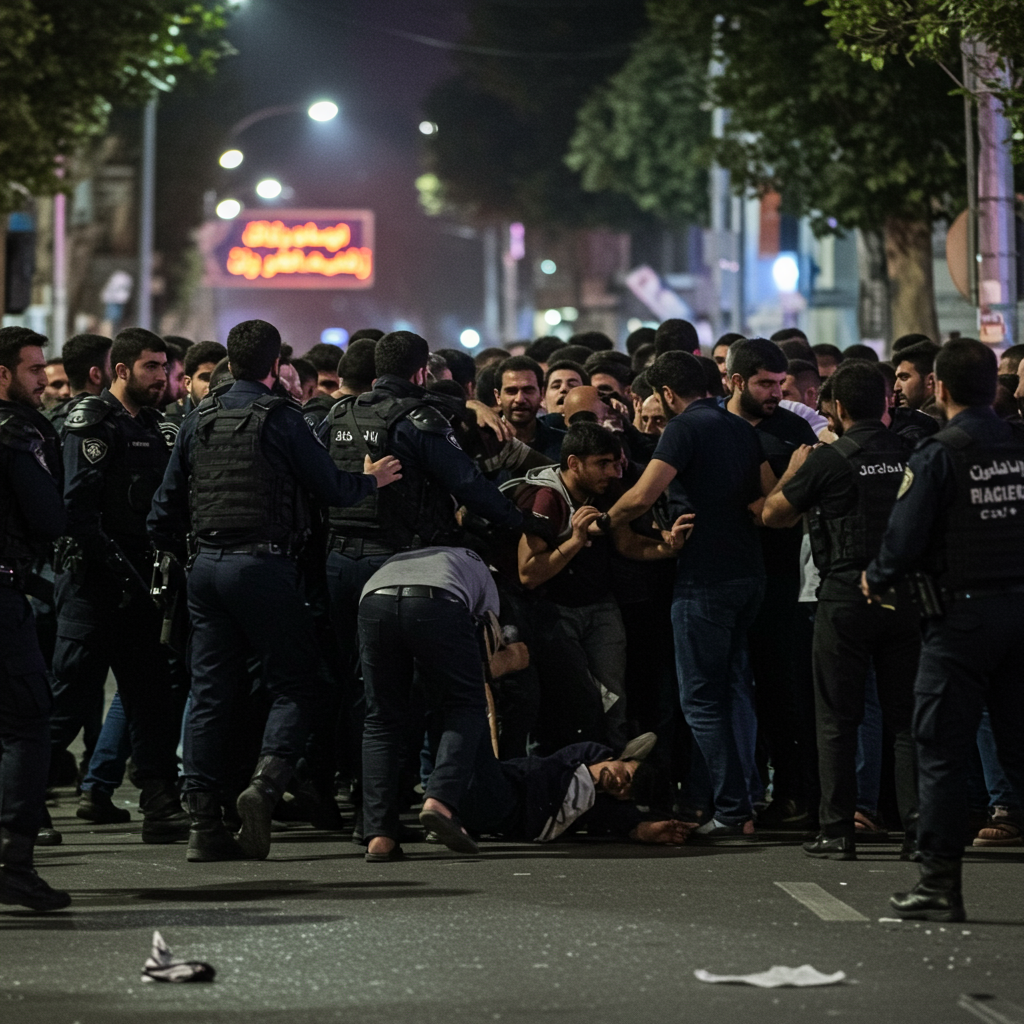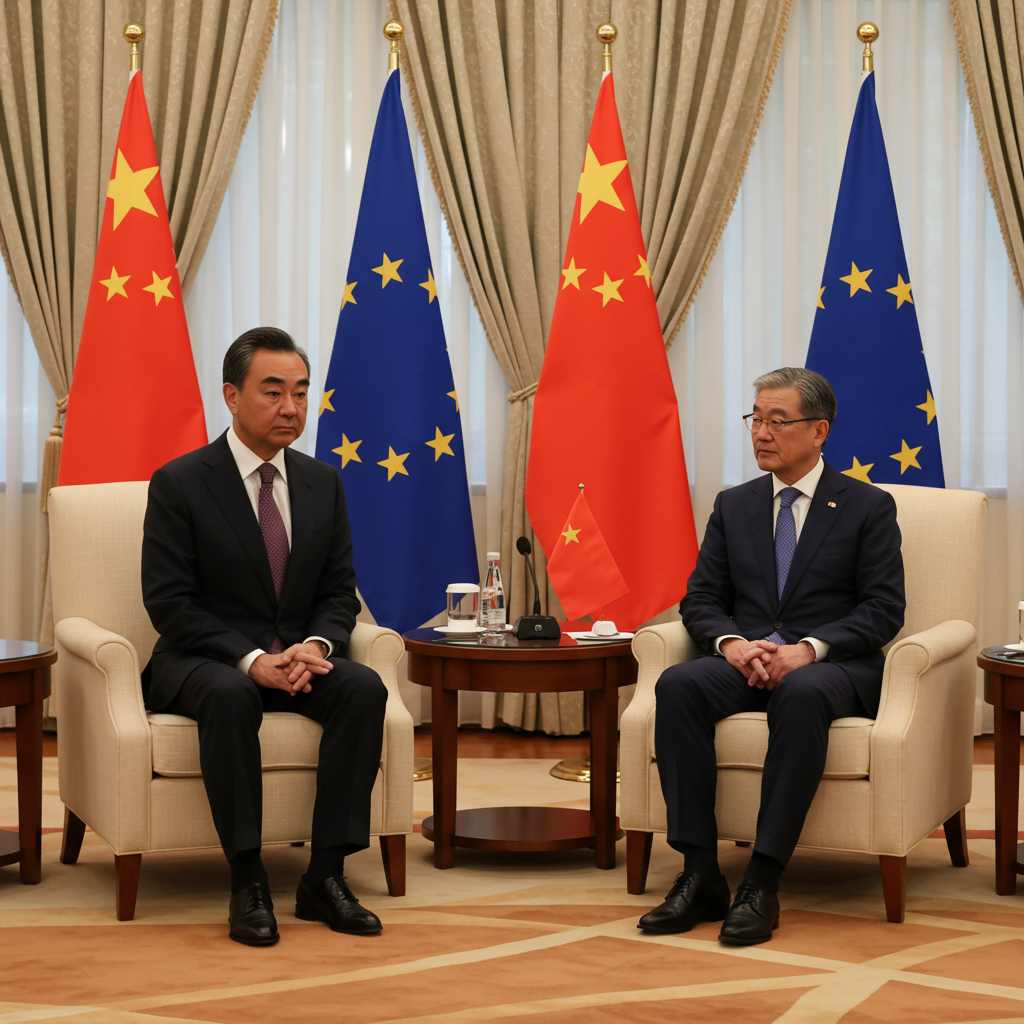Fears are mounting that the Iranian regime is leveraging recent tensions with Israel as a pretext to intensify its crackdown on the domestic population. These concerns surged following the execution of three individuals accused of spying and the mass detention of hundreds more across the country.
Analysts suggest such a severe crackdown was “inevitable” for the heavily repressive regime and predict it will be “quite extensive and quite prolonged.”
Executions and Mass Arrests Amidst Calm
On Wednesday, three people were reportedly put to death after being accused of spying for Israel’s intelligence agency, Mossad. According to Tasnim, an outlet linked to Iran’s Islamic Revolutionary Guard Corps, the individuals allegedly smuggled “assassination equipment” disguised as alcoholic beverages into the country, which was then used in the killing of a public figure.
Simultaneously, the state-aligned Fars News Agency reported the arrest of over 700 individuals over the preceding 12 days, labeling them “Israeli mercenaries.”
These reports emerged after a period of relative calm between Israel and Iran, following recent hostilities that began with Israeli strikes on Iranian nuclear facilities and other targets on June 13.
Deepening Crackdown: Expert Perspectives
Experts view these actions as a predictable response from Tehran. The regime, which has a long history of executing individuals accused of spying for foreign entities, particularly Israel, is seen as consolidating power and suppressing potential dissent.
While suspicions of Israeli infiltration are not unfounded – with some Israeli media outlets publishing footage allegedly showing Mossad agents operating inside Iran during the recent attacks (though this footage remains unverified by NBC News) – human rights advocates express grave concerns.
Human Rights Alarms Raised
Leading human rights organizations, including Amnesty International, have sounded the alarm over the wave of executions and arrests. They warn that the regime may be conducting sweeping detentions and imposing death sentences without providing credible evidence of wrongdoing.
Kenneth Roth, former executive director of Human Rights Watch, echoed these concerns, highlighting Iran’s “notorious lack of due process.” He stressed the significant risk that individuals could face accusations, convictions, and severe sentences based on “flimsy if any evidence.” The head of Iran’s judiciary, Gholam-Hossein Mohseni-Ejei, has further fueled these fears by recently calling for the expedited sentencing of alleged collaborators with Israel.
Internet Blackouts and Regime Motivations
Adding another layer to the crackdown, near-total internet blackouts have been reported across Iran. While the Communications Ministry claims these are necessary to prevent Israeli cyberattacks, human rights groups view them as a tool of repression, used previously by the government to stifle communication and control information flow during times of civil unrest.
Security analysts suggest multiple motivations behind the intensified crackdown. It could serve as a “pretext to pre-empt any signs of dissent or public protest” against Iranian officials for perceived failures in protecting the country’s infrastructure and civilians from Israeli attacks. Furthermore, the “manhunt” for spies may aim to “deflect attention away from higher level officials” who could be responsible for successful Israeli intelligence penetration within Iran.
Political Context and Uncertainty
The political rhetoric surrounding the recent conflict may also play a role. Talk of “regime change” by figures like former U.S. President Trump and Israeli Prime Minister Benjamin Netanyahu (though Trump has since softened his stance) likely amplified paranoia within the Iranian leadership.
Experts note that calls for the Iranian public to rise up during moments of aerial bombardment, such as those made by Netanyahu, are often misguided, as people typically seek shelter rather than attempt to overthrow an entrenched, repressive government.
As the regime appears likely to “harden and consolidate” its grip, the future for the Iranian population living under increased repression remains deeply uncertain.



